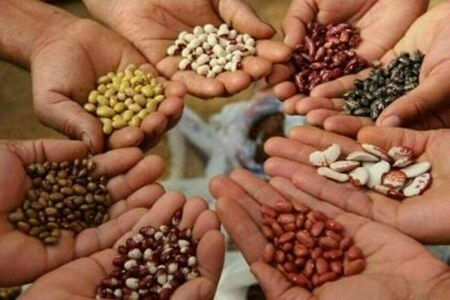Seed Sector Experts Urge Farmers to Choose Reputable Companies for High-Quality Seeds
LAHORE: Professionals in the seed industry have strongly advised farmers to procure seeds exclusively from well-known companies that dedicate resources to research and development. These companies produce superior seeds specifically designed to withstand changing weather conditions, enabling farmers to increase their yields and minimise potential losses.
The experts stated, “Farmers in Pakistan, like many others globally, risk substantial economic setbacks if they utilise seeds lacking the necessary genetic attributes. These seeds can result in crop failure, despite significant investments in fertilisers, water management, and manpower. This underscores the critical need for certified, data-supported seeds from reliable R&D firms.”
They highlighted that while seed costs only represent about 5% of total production expenses, especially in the vegetable sector, using uncertified seeds can lead to significant losses.
This was the core message conveyed during a discussion hosted by the Agriculture Journalists Association (AJA), Lahore. The panel featured Gerard Eysink, Regional Head Vegetable Seeds Syngenta; Sohail Maqbool, Country Head Vegetable Seeds Pakistan; and Muhammad Shoaib, Manager Seeds and Trait Regulatory, who elaborated on the subject.
Gerard Eysink revealed that his organisation invests 20% of its sales revenue in Research & Development (R&D). He emphasised that seed quality is more than just price; it determines the outcome of a harvest. Hybrid seeds developed for firmness and extended shelf life can greatly reduce post-harvest wastage, thereby boosting farmers’ profits. Companies with extensive data from local trials are encouraging farmers to utilise this information to select the best varieties for their land and market demands.
Concerning Pakistan, he noted that the country’s climate change challenges, unpredictable weather patterns, and inadequate attention to the vegetable seed sector have created avenues for international collaboration. Although the government has typically prioritised major crops, there is an increasing awareness of the importance of vegetables for food security. He also acknowledged that the Pakistani government’s proactive engagement with international firms indicates an openness to regulatory changes and local production incentives.
Gerard noted, “We are encouraged by the Pakistan government’s supportive attitude towards the seed business, particularly with the introduction and approval of Plant Variety Protection (PVP) regulations. We anticipate that these regulations will facilitate the introduction of globally available hybrid seed germplasm in Pakistan, provide Pakistani farmers access to advanced technologies, and stimulate investment and innovation within the seed sector.”
He explained that private seed companies already have a presence in Pakistan, with offices, warehouses, and trial sites. These companies can use a global product portfolio to find seed varieties tested in other regions that could flourish in Pakistani conditions.
Although obstacles and costs persist, notably with urban growth and transport issues, there is a clear change. Farmers are increasingly using data and becoming more selective, while governments are intensifying efforts to address the problems of counterfeit seeds and policy revisions. As Pakistan prioritises food security and embraces global expertise, a new era is emerging, where quality seeds are essential for sustainable agriculture and national resilience.



Comments (0)
No comments yet. Be the first to comment!
Leave a Comment